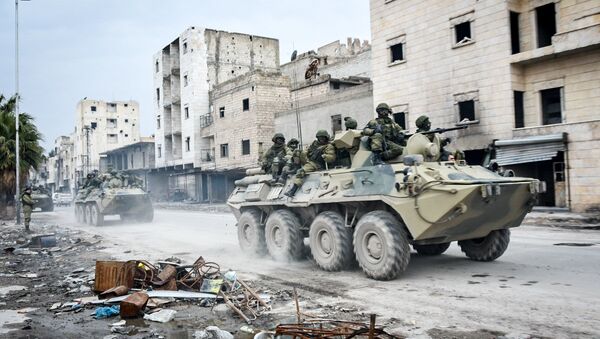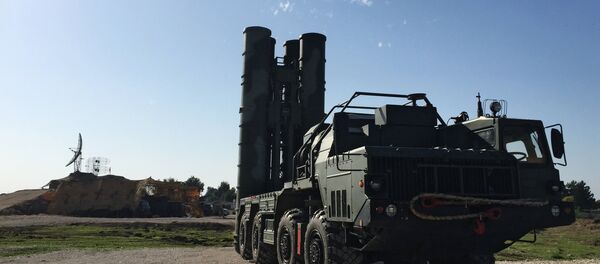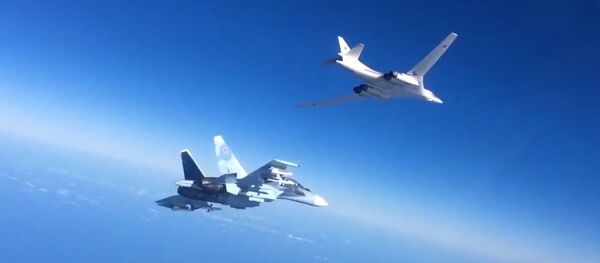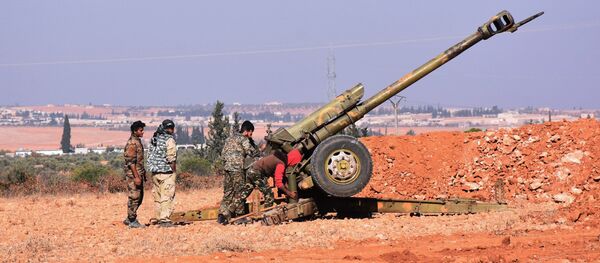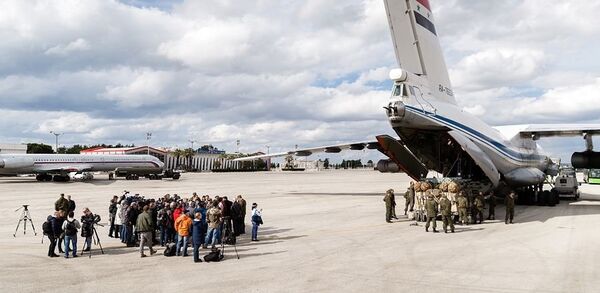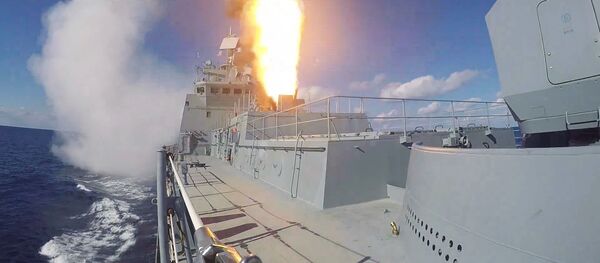MOSCOW (Sputnik) — Russia is starting to further reduce its military presence in Syria after completing a range of objectives and in the wake of the renewed ceasefire in the war-torn country, the Russian Armed Forces General Staff said Friday.
The first scaling back of the Russian campaign took place in March, when Russian President Vladimir Putin announced the withdrawal of the bulk of the country's air group from Syria, stating that the mission's aims had been achieved and a chance should be given to diplomacy. A limited force remained and has been active in assisting Syrian forces against terrorists in eastern Syria and in Aleppo.
PHASEOUT
"In accordance with the decision of Supreme Commander-in-Chief of the Russian Armed Forces Vladimir Putin, the Defense Ministry is beginning to reduce the Armed Forces grouping in Syria," First Deputy Defense Minister Gen. Valery Gerasimov told reporters on Friday.
Gerasimov said the reduction begins with the aircraft carrier Admiral Kuznetsov and the Pyotr Velikiy battlecruiser alongside auxiliary ships. The carrier battle group arrived to the eastern Mediterranean in November after passing through the English Channel and Gibraltar.
Admiral Kuznetsov is set to be on its way back home to the Russian Northern Fleet's base later in the day, according to Gerasimov. The rest of the naval group will follow the aircraft carrier back to Severomorsk.
MISSION ACCOMPLISHED
The Russian Naval Aviation's carrier battle group in the east Mediterranean described its achievements over the past two months of the campaign.
"In two months of combat actions, Naval Aviation pilots carried out 420 sorties, 117 of them at night… Destruction was inflicted on 1,252 terrorist objects," the group's task force commander, Col. Gen. Andrei Kartapolov, said.
He stressed that the Admiral Kuznetsov-led group had completed all of its objectives, including the creation of a single air defense system. The system involved setting up interoperability between the Russian Aerospace Forces and the Bastion coastal defense systems on Syrian shores.
"A unified air defense system that provides reliable protection both on land and at sea was created jointly with the Russian troops in Syria's air defense forces and means on the basis of the modern S-300 and S-400 systems," Kartapolov said.
CEASEFIRE
The Syrian army praised Russia's role in helping achieve what appears to be a holding ceasefire.
"The support provided by the Russian Aerospace Forces played a major role in these victories, paving the way for a ceasefire agreement and creating the appropriate conditions to launch the Syrian crisis political settlement process," Ayyoub said via videoconference.
The process of political settlement for the crisis is expected to resume early this year. On December 17, Russian President Vladimir Putin and his Turkish counterpart Recep Tayyip Erdogan discussed in a phone call the possibility of a meeting in Kazakhstan's capital Astana between the parties to the Syrian conflict with Russia, Iran and Turkey as potential mediators.
On Wednesday, Turkish Foreign Minister Mevlut Cavusoglu gave additional details on the proposal, stating that the talks may begin on January 23 provided that the ceasefire regime is upheld on the ground. He added that Russian experts are set to arrive to the Turkish capital of Ankara on January 9-10 in preparation for the upcoming Astana talks.
The Astana talks are likely to be followed by the next round of UN-backed talks in Geneva. The intra-Syrian peace talks were supposed to take place in February 2016, but were suspended two days after kicking off. In December 2016, UN Special Envoy for Syria Staffan de Mistura said the United Nations wanted to reconvene the talks on February 8, 2017. Russia has stressed that the Astana and Geneva platforms do not seek to become rivals, but are, rather, complimentary.
"The Syrian people hope to strengthen ties with Russia across all spheres, including military cooperation that should continue between the two countries even after terrorists are defeated," Ayyoub said.
Russia's general staff chief Gerasimov stressed the importance of the liberation of Aleppo by Syrian government forces for achieving lasting peace.
"The successes of the Syrian armed forces in liberating Aleppo created the necessary conditions for the peaceful resolution of the conflict," Gerasimov said.
He added that the nationwide truce agreement that took effect on December 30 served as clear confirmation of the fact.

